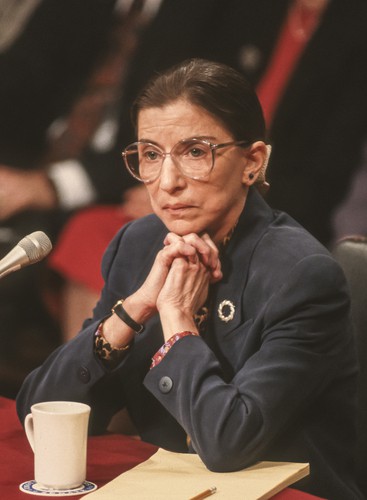By Jo A. Tatarko, Esq.
I am a big fan of films about lawyers, such as To Kill A Mockingbird, Philadelphia, and My Cousin Vinny.
But, RBG is in a category of its own.
RBG is an homage to Ruth Bader Ginsburg and her ability to overcome hurdles in her personal and professional life, which ended up sharing a common thread. But, RBG is also a tribute to Ginsburg’s pioneering work in arguing that women are entitled to equal protection under the law.
There is no doubt that Ruth Bader Ginsburg has reached near-superhero status, at least for some, based on her fierce dissenting opinions. At the age of 85, Ginsburg even works out with a personal trainer, who refers to her as “cyborg” because she is “like a machine.”
Whatever your views are on Ginsburg, there is no doubt that our lives, specifically the lives of women, would not be what they are today without her legal work.
Ruth Bader Ginsburg: Changing The Legal Landscape
There were a number of discriminatory laws in effect in the United States at the time Ginsburg began her work. At that time, employers could fire a woman for being pregnant, banks could require a woman applying for a loan to have her husband co-sign, and marital rape was generally not prosecuted. Ginsburg set about to change that legal landscape.
Frontiero v. Richardson
Ginsburg used legal precedent that extended equal protection to African-Americans to argue that women should have the same protection. In Frontiero v. Richardson[1], Ginsburg’s first argument before the United States Supreme Court, a female second lieutenant in the Air Force was denied a housing allowance and other benefits given to her male counterparts. Although Ginsburg won the case, she lost her argument that discrimination against women should be subjected to strict scrutiny. However, Ginsburg stood by her belief that “real change happens one step at a time” and continued to argue for that standard.
Weinberger v. Wiesenfeld
In Weinberger v. Wiesenfeld[2], Ginsburg represented a widower whose wife had died in childbirth. He was denied social security benefits that were routinely granted to surviving widows. Ginsburg argued that the denial of benefits constituted discrimination on the basis of sex. She won the case in an 8-0 opinion. Ginsburg saw herself in the role of a kindergarten teacher, who was teaching the Justices what it was like to be treated as a second-class citizen. Ginsburg argued that even men could be discriminated against on the basis of sex, which gave credence to the argument.
The second half of the film focuses on Ginsburg’s role on the United States Supreme Court after her nomination in 1993.
U.S. v. Virginia
In U.S. v. Virginia [3], the Court reversed a lower court decision and allowed women to attend an all-male military college. Writing for the Court, Ginsburg found there was no “exceedingly persuasive justification” for the exclusion of women and the allegedly separate but equal program established for women failed to create a “comparable single-gender institution for them.
Ledbetter v. Goodyear Tire & Rubber Co.
In Ledbetter v. Goodyear Tire & Rubber Co.[4], a woman sued her employer when she realized she was paid 40% less than her male counterparts for doing the same job. While the Court found her suit was precluded because Ledbetter failed to file her claim with the Equal Employment Opportunity Commission timely, Ginsburg is credited with changing the law through her dissent.
Ginsburg called upon Congress to correct the Court’s misreading of Title VII of the Civil Rights Act, which prohibits employer discrimination based on sex, race, color, national origin, and religion.
Her dissent leads to the passing of the Lilly Ledbetter Fair Pay Act, which states that the 180-day statute of limitations for filing an equal-pay lawsuit regarding pay discrimination resets with each new paycheck affected by that discriminatory action.
One person’s impact to affect change
Our legal environment would not be the same if it were not for Ginsburg. RBG demonstrates how even just one person can affect change through his or her legal work.
[1] 411 U.S. 677 (1973). Ginsburg argued that women should be afforded equal protection under the Fifth Amendment of the U.S. Constitution, which forbids discrimination that is “so unjustifiable as to be violative of due process.” Id.
[2] 420 U.S. 636 (1975).
[3] 518 U.S. 515 (1996).
[4] 550 U.S. 618 (2007).







